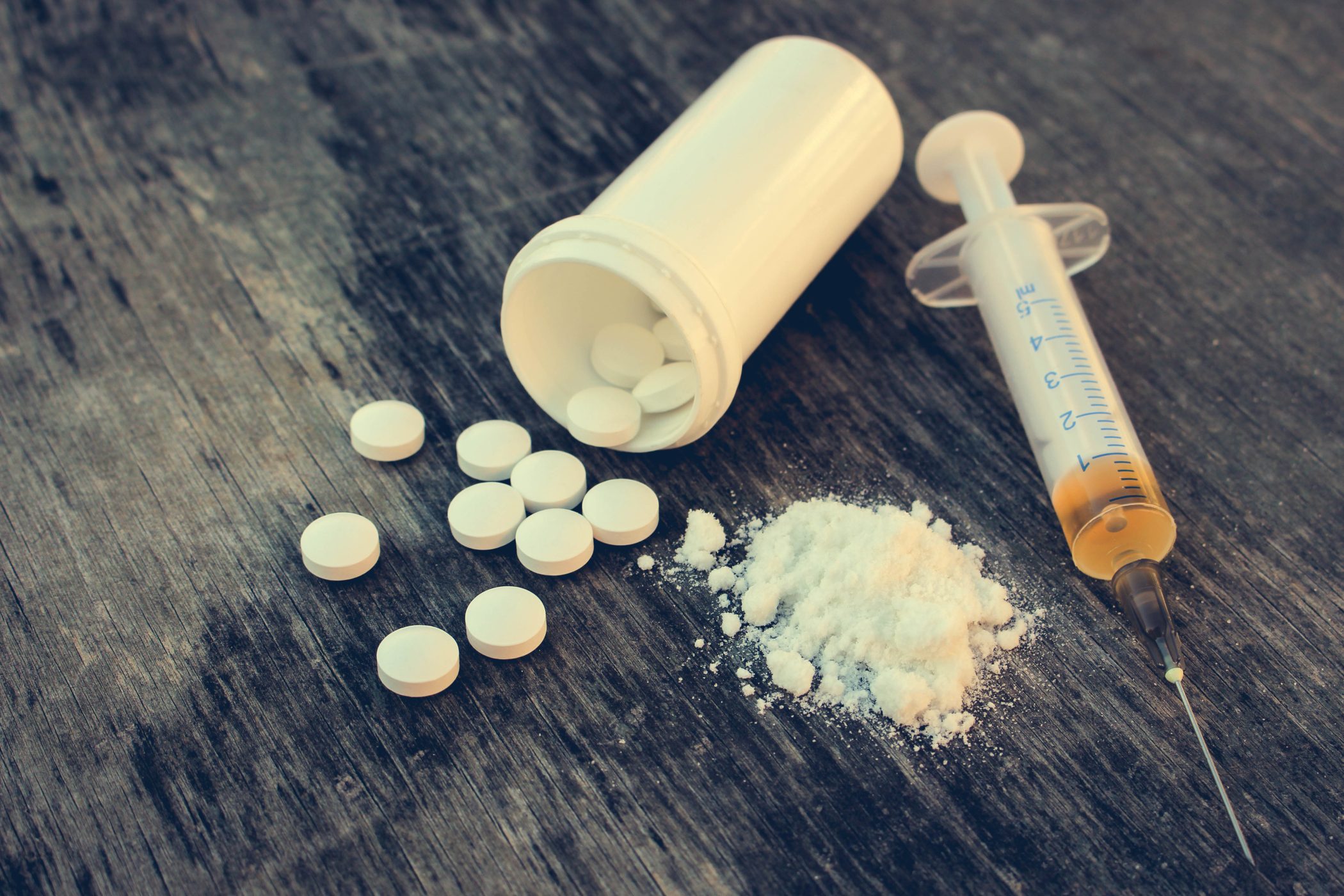 Vicodin is a narcotic, codeine-derivative drug containing hydrocodone and acetaminophen (paracetamol). An opioid analgesic prescribed to relieve severe pain, Vicodin is also a central nervous system depressant that is listed by the U.S. Drug Enforcement Agency (DEA) as a Schedule II controlled substance. In 2019, Vicodin was the 15th most prescribed drug in the U.S.
Vicodin is a narcotic, codeine-derivative drug containing hydrocodone and acetaminophen (paracetamol). An opioid analgesic prescribed to relieve severe pain, Vicodin is also a central nervous system depressant that is listed by the U.S. Drug Enforcement Agency (DEA) as a Schedule II controlled substance. In 2019, Vicodin was the 15th most prescribed drug in the U.S.
Why is Vicodin Considered a Narcotic?
Hydrocodone is an addictive opioid medication that affects the brain similar to the way heroin affects the brain. For example, both hydrocodone and heroin stimulate the mu-opioid receptors in the brain to relieve pain and induce pleasant feelings of drowsiness and euphoria. Hydrocodone further impacts the brain’s reward system like other addictive drugs, causing the system to flood the brain with dopamine.
Opiates like hydrocodone are derived from the poppy plant. However, hydrocodone is referred to as a semi-synthetic opioid because it is not naturally occurring. Instead, hydrocodone is made in pharmaceutical laboratories by altering the structure of the codeine molecule.
Although acetaminophen is not a narcotic drug, it can lead to liver damage when consistently taken in high doses. Acetaminophen relieves pain by reducing the production of prostaglandin, a chemical involved in most inflammatory processes.
How Addictive is Vicodin?
Physicians prescribe Vicodin for temporary relief from severe pain caused by dental procedures, post-operative recovery and compound bone fractures. In some cases, people with terminal diseases are given Vicodin prescriptions for as long as they need them.
Taking Vicodin for more than a week significantly increases the risk of addiction for individuals who are predisposed for addiction or who have a history of substance abuse. If someone taking Vicodin notices that taking the same dosage is no longer alleviating their pain, they have likely developed a tolerance for the drug. Tolerance is the first stage of an addiction.
Withdrawal Symptoms and Vicodin Addiction
When someone addicted to Vicodin stops taking the drug, they may experience withdrawal symptoms such as:
- Body pain
- Nausea and vomiting
- Insomnia
- Irritability, restlessness and anxiety
- Headache
- Flu-like symptoms
If a Vicodin addict is unable to get another prescription from their doctor, they may go “doctor-shopping” to find a physician who will provide them with a Vicodin prescription. Others will seek out drug users and dealers on the street. Many heroin users say that an addiction to Vicodin or other opioid prescription drug initially led them to their introduction to heroin.
Vicodin Statistics
According to the CDC, the number of Vicodin prescriptions declined to its lowest level in 14 years in 2019. However, the CDC notes that opioid dispensing rates are still too high, especially in certain regions of the country. For example, five percent of all U.S. counties have physicians writing enough Vicodin and other opioid prescriptions to provide every county resident with one prescription.
Treatment for a Vicodin Addiction
Long-term Vicodin addiction typically requires users complete a detoxification program before entering an inpatient or outpatient treatment center. Medication-assisted treatment (MAT), cognitive behavioral therapy, individual and group counseling and relapse prevention are just some of the evidence-based methods used to treat a Vicodin addiction.
MAT involves medications to relieve withdrawal symptoms and cravings for opiates. Methadone, buprenorphine (Suboxone and Subutex) and Naltrexone are the most commonly prescribed medications for treating a Vicodin addiction. Individuals in detox often begin taking buprenorphine to alleviate withdrawal symptoms. Subutex is the sublingual (under the tongue) form of buprenorphine and is usually prescribed at the beginning of detox. Suboxone (oral form) is then later prescribed to individuals in therapy.
Naloxone is not part of MAT for a Vicodin addiction. This medication is given to people who have overdosed on Vicodin, heroin and other opioids. Naloxone reverses the effects of an opioid overdose by blocking brain receptors and reducing suppression of the central nervous system.
Call America’s Rehab Campuses Today for Help with a Vicodin Addiction
If you or someone you know is struggling with an addiction to Vicodin, please call ARC to speak to someone about finding the right inpatient or outpatient treatment facility for you or a loved one.

